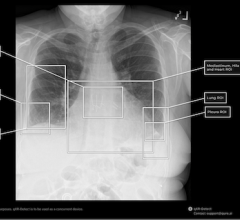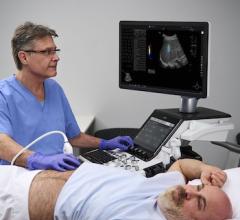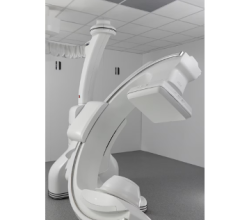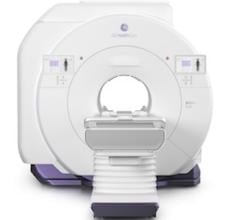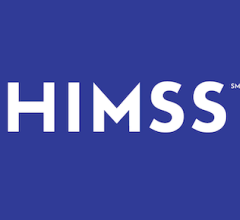
The Radiological Society of North America (RSNA) has launched the 2024 RSNA Lumbar Spine Degenerative Classification AI Challenge. RSNA organizes AI challenges to spur the creation of AI tools for radiology and improve patient care. Image courtesy: Getty Images
May 29, 2024 — The Radiological Society of North America (RSNA) has launched the 2024 RSNA Lumbar Spine Degenerative Classification AI Challenge. RSNA organizes AI challenges to spur the creation of AI tools for radiology and improve patient care.
The challenge, developed in collaboration with the American Society of Neuroradiology (ASNR) and the American Society of Spine Radiology (ASSR), invites researchers to develop models that can detect and classify degenerative spine conditions using lumbar spine MR images. The carefully curated and annotated dataset includes images from eight sites across five continents.
“With the help of more than 50 volunteer expert annotators from ASNR and ASSR, our task force is excited to introduce the largest open-source annotated lumbar spine MRI dataset of its kind,” said Jason Talbott, M.D., Ph.D., co-leader of the challenge task force and professor in the Clinical Radiology & Biomedical Imaging Division at University of California at San Francisco (UCSF) and San Francisco General Hospital.
According to the World Health Organization, low back pain is the leading cause of disability worldwide, affecting 619 million people in 2020, a 60% increase over 1990.
Most people experience low back pain at some point in their lives, and its prevalence increases with age. Pain and restricted mobility are often symptoms of spondylosis. Spondylosis encompasses a set of degenerative spine conditions, including degeneration of vertebral discs and narrowing of the spinal canal (spinal stenosis), that exert pressure on nerves in the low back.
MRI provides a detailed view of the lumbar spine vertebrae, discs and nerves, enabling radiologists to assess the presence and severity of these conditions. Proper diagnosis and treatment can improve the overall health and quality of life for patients.
“Lumbar spine pain drives a large portion of medical imaging, so the development of a strong algorithm has great potential to impact a huge number of patients suffering from this common condition,” said Tyler Richards, M.D., co-leader of the challenge task force and assistant professor of neuroradiology at the University of Utah Hospital.
AI provides tools that enhance the efficiency and accuracy of MRI. To build these tools, AI researchers need access to substantial volumes of imaging data annotated by expert radiologists. According to the news release detailing the Challenge by RSNA, data challenges such as the RSNA Lumbar Spine Degenerative Classification AI Challenge engage the radiology community to develop such datasets, which provide the standard of truth in training AI systems to perform tasks relevant to diagnostic imaging.
“This AI challenge addresses a clinical issue that has been shown to be challenging for radiologists to agree upon, so it serves a potential role for AI to provide some standardization and consistency that has been difficult for radiologists,” Richards said.
In a challenge, researchers compete on how well their AI models perform specific tasks such as detection, localization and categorization of abnormal features according to defined performance measures. Each AI challenge explores and demonstrates the ways AI can benefit radiology and improve patient care.
The 2024 RSNA Lumbar Spine Degenerative Classification AI Challenge is being conducted on a platform provided by Kaggle, Inc., and is open to all researchers. The top nine performing competitors will share in a total of $50,000 in prize money.
“Competitors will have the opportunity to build algorithms that advance our ability to accurately and rapidly identify and classify lumbar degenerative spine disease. Such tools have the potential to improve current state-of-the art technology and transform the future of degenerative spine diagnosis and management,” Dr. Talbott said.
Previous RSNA AI challenges have drawn over 1,000 teams composed of expert AI researchers from around the world. The highest performing models are made available under open licenses to encourage additional research.
The competition will run through September 2024. Winners will be announced in November and winning teams will be recognized in the AI Theater during RSNA’s 110th Scientific Assembly and Annual Meeting (RSNA 2024), to be held Dec. 1 – 5 at McCormick Place in Chicago, IL.
More information: RSNA.org/AI-image-challenge


 March 02, 2026
March 02, 2026 
